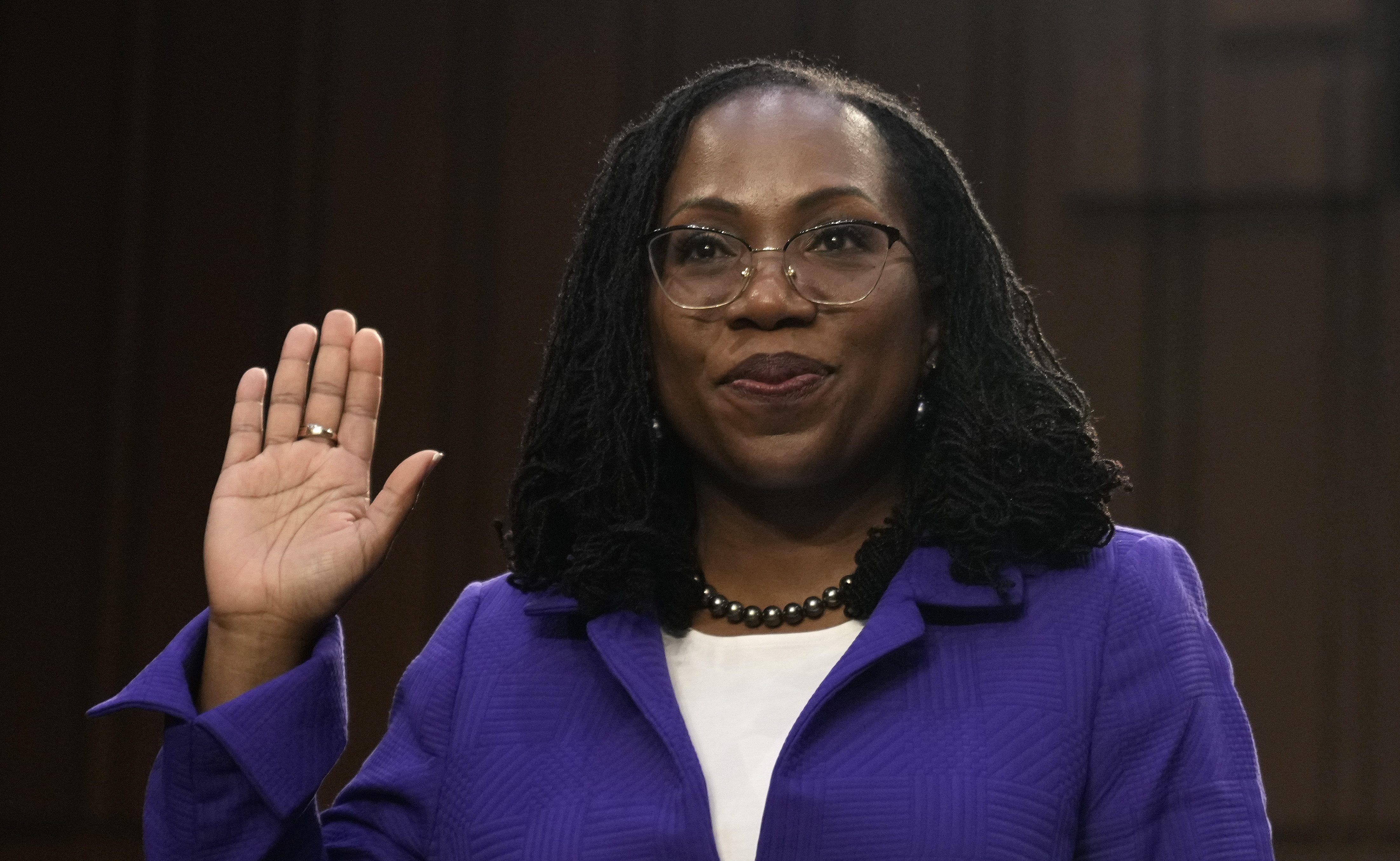A day after the first Black woman was confirmed to serve on the Supreme Court of the United States, a nomination hearing took place in Maine for the judge who could be the first person of color to serve on that state's highest court.
On Friday afternoon, Maine District Court Judge Rick Lawrence appeared before the judiciary committee of Maine's legislature for a hearing that resulted in the advancement of his nomination to the Maine Supreme Judicial Court.
All 10 members of the committee present for the hearing voted in the affirmative to forward consideration of Lawrence to the full Maine Senate.
"It is a distinct honor," Lawrence told reporters gathered outside the hearing room in the Maine State House after the vote.
Get Boston local news, weather forecasts, lifestyle and entertainment stories to your inbox. Sign up for NBC Boston’s newsletters.
Lawrence is a Harvard Law School and Yale University graduate who is originally from Great Barrington, Massachusetts.
He has served as a district court judge in Maine since 2000, when he was first nominated to the position by then-Gov. Angus King. He has since been re-nominated by governors of both parties, including Republican Paul LePage, who is seeking a third non-consecutive term in office in 2022.
Current Gov. Janet Mills, a Democrat, nominated Lawrence for the high court last month.
During his hearing, Lawrence touched on his experience and career, including work for companies like Unum Insurance.
He said he would be an effective bridge to Maine's Supreme Judicial Court from critical areas of the state's justice system that handle cases involving juvenile and protection from abuse cases.
"By training, experience and predisposition, I'm especially motivated to put in the effort to do the work necessary to ensure that critical linkage is sustained," he said.
Lawrence, who was joined by some members of his family at the hearing, also highlighted his childhood in Great Barrington, recalled his parents moving there from the southern United States and explained how discrimination they faced influenced his decision to pursue a career in law.
"I can still recall my parents being denied service at restaurants on the interstate, our family being relegated to barely-functioning colored-only restrooms at rest stops, and my parents having to search for a hotel where my family would be allowed to stay overnight," he told the committee. "My interest in the law and someday becoming a lawyer grew out of those roots."
Others who spoke during the hearing were Mainers, new and old, including a Somali-American woman from Lewiston who told the committee that Lawrence had made a profound impact on Somali families who emigrated to that city.
"This man is given the opportunity to make history for the state of Maine," she said.
As Lawrence prepared to leave the state house after the vote, he was also asked about the confirmation of Judge Ketanji Brown Jackson to the Supreme Court of the United States.
He called Jackson "inspiring," and "very talented," adding that he hoped people everywhere would have an opportunity to see that talent once she is a sitting justice.
More on Judge Ketanji Brown Jackson's confirmation
As for his own hearing, he said, "hopefully folks have some sensor of where my values are, where I came from and take some comfort in that in terms of the job that I'll do on the law court."
The full Maine Senate is expected to vote on Lawrence's confirmation at some point within the next few weeks and, perhaps, as soon as next week.



